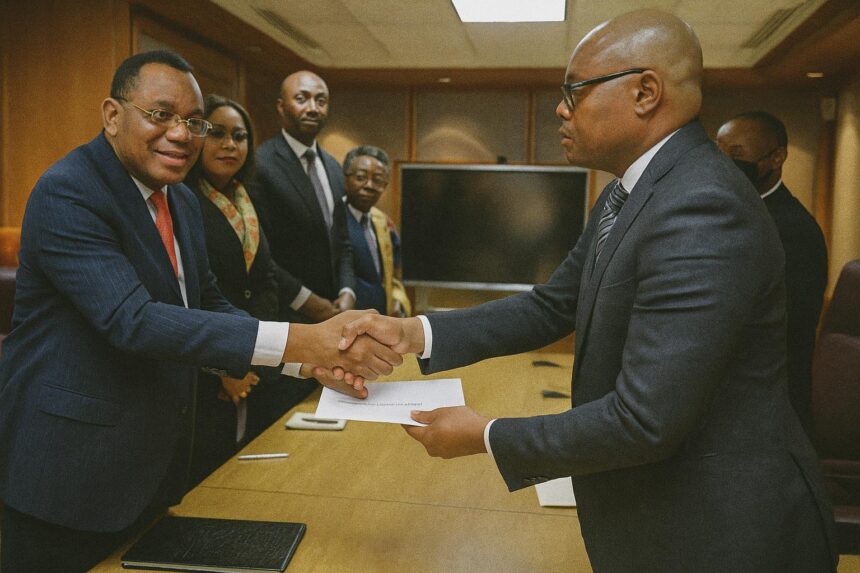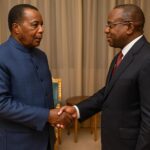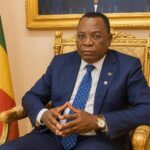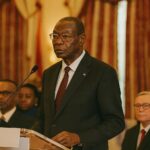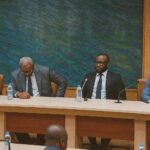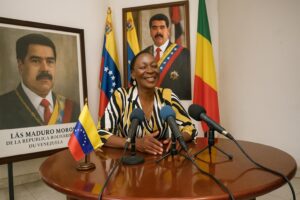Southern Africa outreach and strategic calculus
The Republic of Congo’s current diplomatic ballet across Southern Africa illustrates a calibrated quest for multilateral leverage. Foreign Minister Jean-Claude Gakosso, acting under President Denis Sassou Nguesso’s guidance, has chosen Mozambique, Botswana and Mauritius as the first arc of a wider continental canvassing effort designed to propel Firmin Édouard Matoko to the post of UNESCO Director-General. The itinerary is not accidental; it follows voting arithmetic within UNESCO’s Executive Board, where African unity can prove decisive, and the precedent set by the successful bids of Irina Bokova in 2009 and Audrey Azoulay in 2017 suggests that early regional consolidation often precedes broader alliances (UNESCO Executive Board records, 2017).
Maputo and Gaborone as listening posts
In Maputo, the Congolese delegation encountered an audience well attuned to the politics of cultural multilateralism. Mozambican Foreign Minister Verónica Macamo reportedly underlined the importance of a candidate capable of advancing the General History of Africa project, a resonance Mr Matoko repeatedly foregrounds. Observers from the Joaquim Chissano Foundation noted the meeting’s ‘studied cordiality’, interpreting it as an opening for what one diplomat described as ‘quiet reciprocal commitments’ (O País, 24 July 2023).
The following stop in Gaborone offered a contrasting yet complementary tone. Botswana, reputed for its rule-based diplomacy, voiced interest in a UNESCO agenda that integrates digital learning and wildlife heritage. Minister Lemogang Kwape emphasised ‘shared stakes in safeguarding intangible heritage across the Kavango-Zambezi corridor’. According to a senior Congolese envoy, the exchange allowed Brazzaville to exhibit a pragmatic platform rather than a purely symbolic candidacy, a distinction that often sways middle-power voters within the Executive Board.
Diplomacy of remembrance and symbolic capital
Parallel to formal lobbying, Brazzaville’s envoys engaged in carefully choreographed gestures of historical remembrance. Their visit to the Samora Machel mausoleum in Matola was not merely ceremonial; it evoked Congo’s own role as a rear base for Southern African liberation movements during the 1970s. By invoking this shared liberation narrative, the delegation harnessed what political psychologist Benedict Anderson terms ‘memory capital’, converting moral solidarity into contemporary diplomatic currency. Mozambican historian Yussuf Adam observes that ‘such homage plays well in Maputo, where collective memory remains a living policy driver’.
The symbolism resonates with Mr Matoko’s campaign rhetoric, which pledges to strengthen UNESCO’s Slave Route Project and expand the UNESCO–AU joint initiative on African heritage sites. Analysts at the South African Institute of International Affairs argue that these touchstones may appeal to countries seeking decolonised narratives within global governance structures (SAIIA briefing, August 2023).
Matoko’s vision for an inclusive UNESCO
Currently Assistant Director-General for Priority Africa and External Relations, Firmin Édouard Matoko enjoys a diplomatic profile that fuses institutional experience with continental legitimacy. His manifesto proposes a tripartite pivot: revitalising cultural industries, embedding STEM education in curricula for the Global South and amplifying Africa’s voice within UNESCO’s normative instruments. In a recent interview with Radio Congo, he declared, ‘UNESCO must speak with Africa, not merely about Africa,’ echoing critiques of asymmetrical epistemic dialogue voiced by scholars such as Achille Mbembe. The platform appears designed to create coalition lines that traverse customary North–South cleavages.
French academic Dominique Bourg, commenting for Le Monde diplomatique, argues that Matoko’s positioning may also reassure European members anxious for continuity, since he pledges to preserve UNESCO’s current fiscal discipline while widening donor bases—an agenda reminiscent of Azoulay’s early tenure.
Next frontiers in the West African circuit
With Southern Africa largely canvassed, Brazzaville is redirecting its diplomatic caravan toward West Africa. Prime Minister Anatole Collinet Makosso will personally lead missions to Libreville, Abidjan, Abuja, Ouagadougou, Monrovia and Djibouti City. Each stop is calibrated against voting behaviours recorded during the 2021 Executive Board sessions, suggesting a data-driven diplomacy rather than anecdotal outreach. Abuja, holding one of the continent’s five seats, is deemed pivotal; Nigeria’s Minister of Education, Tahir Mamman, recently signalled Abuja’s readiness to support ‘a consensual African candidate’ provided governance reform remains central (The Guardian Nigeria, 5 September 2023).
Diplomats in Brazzaville stress that the campaign’s tone will remain ‘non-adversarial’. By refraining from overt critique of rival aspirants rumoured from Egypt and Qatar, Congo seeks to project an image of continental cohesion instead of a bidding war. As a senior AU official not authorised to speak publicly observed, ‘African fragmentation has historically diluted our clout in Paris; Brazzaville’s current strategy, if sustained, could upend that pattern.’
Measured optimism in Brazzaville and beyond
Inside the Ministry of Foreign Affairs on Boulevard Alfred Raoul, aides speak of ‘measured optimism’. They point to an informal tally that places Congo within striking distance of the twenty-nine votes required to top the first round in the Executive Board. Yet seasoned diplomats caution that late-cycle bargaining, particularly among Latin American and Asian members, can redraw the field overnight, as witnessed in the dramatic final rounds of 2009.
Still, the confluence of strategic lobbying, memory politics and substantive programme proposals has lent Brazzaville’s campaign an aura of professionalism that observers in Addis Ababa and Paris acknowledge with restrained respect. Should the momentum hold, Congo-Brazzaville could not only elevate one of its nationals to the pinnacle of UNESCO but also demonstrate the utility of thoughtful, non-confrontational statecraft in a fracturing multilateral order.

